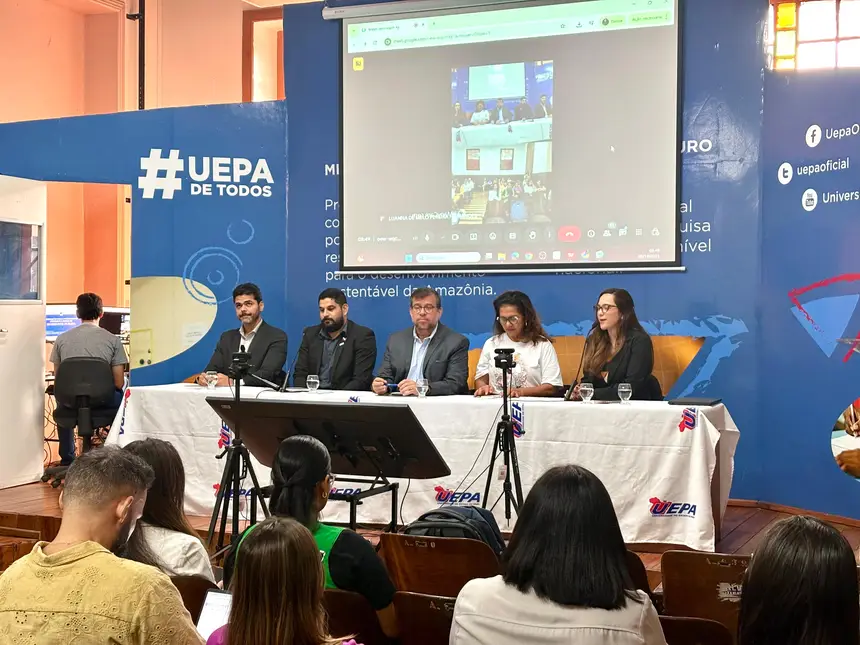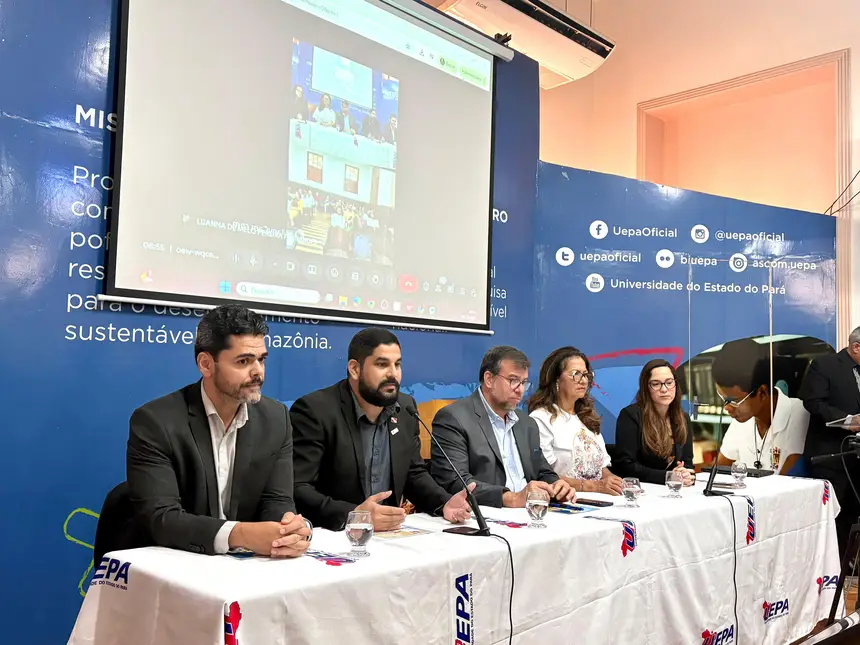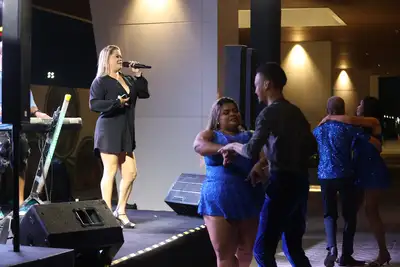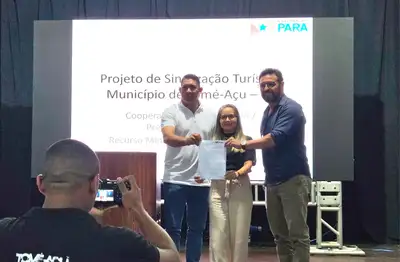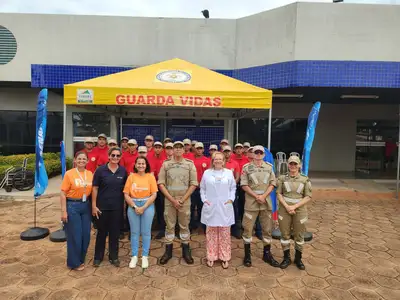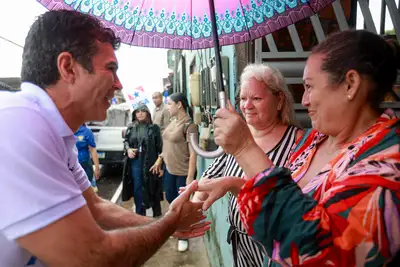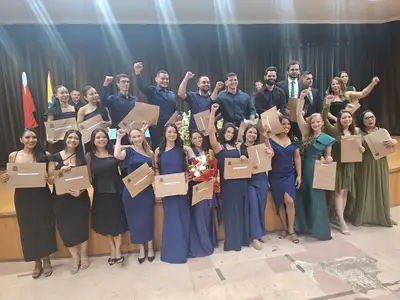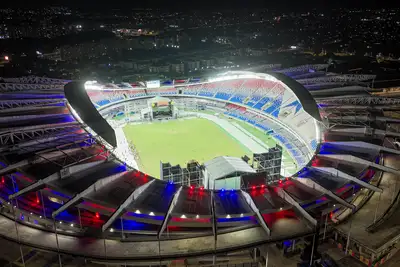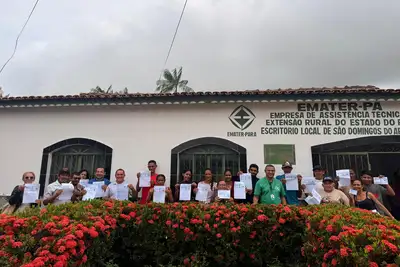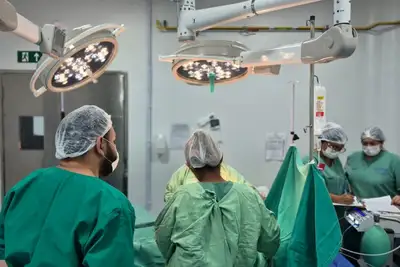Fapespa and Uepa strengthen international scientific cooperation with the Horizon Europe Program
Workshop brought together researchers, faculty, and a representative from the European Union to present funding opportunities and international partnerships focused on research and innovation in Pará
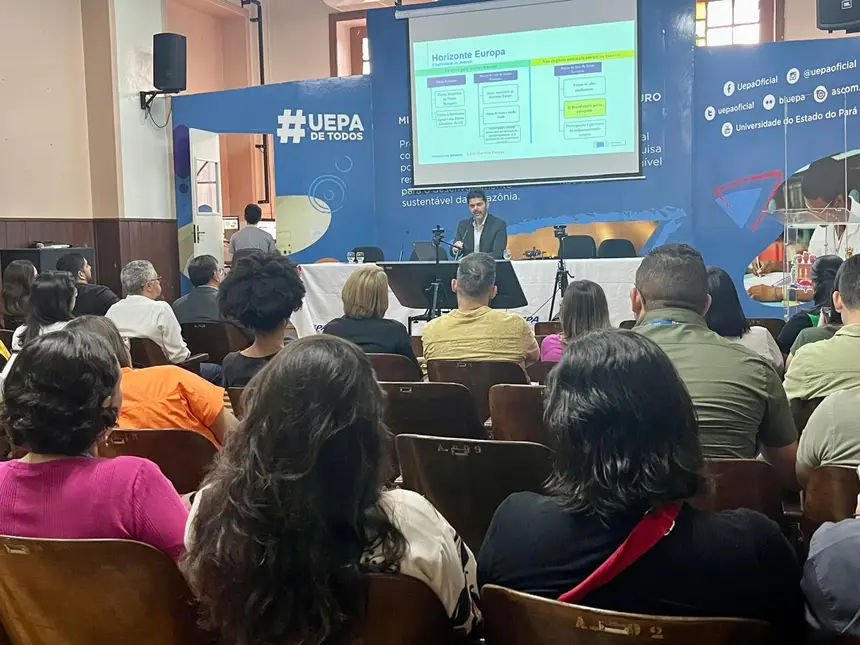
The Amazon Foundation for Support of Studies and Research (Fapespa) and the State University of Pará (Uepa) held the workshop "Opportunities for International Scientific Cooperation with the European Union" on Thursday (9), aimed at researchers and leaders of Science, Technology, and Innovation Institutes (ICTs) in Pará. The event presented possibilities for Pará institutions to participate in the Horizon Europe Program, the main European Union initiative for funding research and innovation.
The activity took place in the auditorium of Uepa's Rectory in Belém and was attended by Dhallys Mota, Science, Technology, and Innovation Officer of the European Union in Brazil. During the workshop, he explained how the Program works, the thematic areas covered, and the participation mechanisms available for Brazilian researchers.
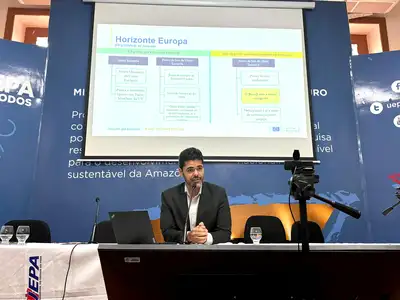
“This presentation was super interesting, and it is important in the process of internationalizing our universities, considering that we have many calls open and available, in which Brazil can participate through its researchers. We had a great online participation, and for those who could not follow, we will leave the link to the portal where all available calls can be found. In 2025, the next list will be published in December, covering the years 2026 and 2027,” informed Dhallys Mota.
Guidelines - During the event, the Scientific Director and acting president of Fapespa, Deyvison Medrado, informed that the Foundation will present support guidelines for the participation of Pará researchers in international projects, reinforcing the institution's commitment to the internationalization of science and strengthening research aimed at the major Amazonian challenges.
The rector of Uepa, Clay Chagas, emphasized the importance of the partnership to expand the frontiers of scientific production in the State. “The great leap of this seminar is to bring the European Union into the State of Pará and our institutions, so that we can establish new funding and new possibilities for our researchers' participation. No institution alone can make significant leaps. This joint work with Fapespa and the European Union is essential to expand our internationalization,” he stated.
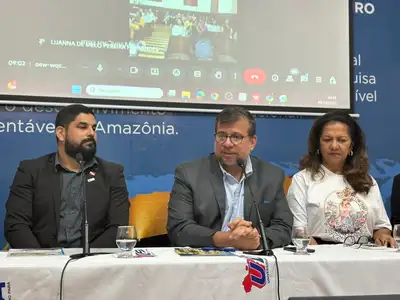
The rector also highlighted the relevance of knowledge exchange between different scientific and cultural contexts. “Several countries are already in more advanced stages of research. This leap will only be possible if we understand that it is necessary to internationalize and share knowledge. It is also important to value the dialogue between consolidated scientific knowledge and the traditional knowledge of the Amazon, the peoples, and local institutions,” he added.
Integration - For Professor Pedro Franco de Sá, Chair of Mathematics Education at Uepa and coordinator of the Graduate Program in Mathematics Education, the workshop represents a positive milestone for the University and the Pará scientific community. “I find the Horizon Europe workshop extremely important, as it allows us to see how we can, through our participation, integrate into research funded and conducted in partnership with the European Community. The outcome will be very positive for the University and the community of the State of Pará,” he assessed.
Professor Renata Oliveira, PhD in Industrial Engineering and Management and faculty member of Uepa, also participated in the meeting. According to her, the initiative broadens the perspectives for collaboration and internationalization of research in the State. “I received the invitation to participate in the seminar through the Pro-Rectorate of Research and Graduate Studies, and I see this as a great opportunity for the entire academic community, teachers, students, technicians, and society as a whole. I am a graduate of an internationalization program, and I completed my doctorate entirely at the University of Porto, in Portugal, which is part of the European Union. I found this workshop important because it allows everyone to learn about the various programs and funding opportunities, and already plan future actions for the coming years,” said Renata Oliveira.
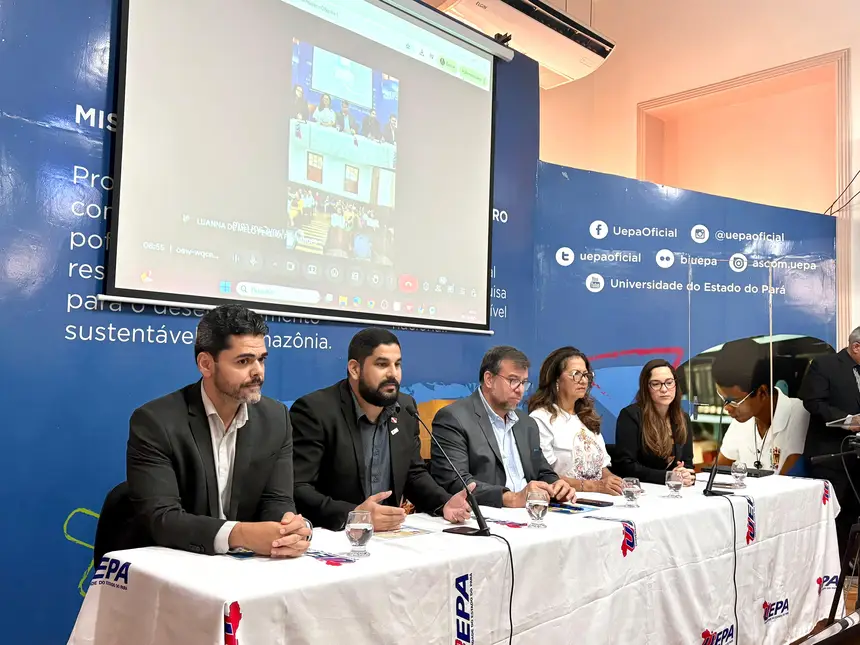
She also emphasized the relevance of international partnerships. “The partnership with the European Union is fundamental for Brazil, not only for funding opportunities but also for the exchange of experiences. European universities have a lot of maturity and experience, while we have a profile strongly focused on innovation. It is a productive exchange for both parties,” added Renata Oliveira.
For Deyvison Medrado, “Fapespa reaffirms its commitment to the internationalization of science produced in Pará and the strengthening of research aimed at the major Amazonian challenges. Horizon Europe is a strategic gateway for our researchers to access global networks of excellence, promote high-impact scientific collaborations, and contribute innovative solutions for sustainability, bioeconomy, and the development of our region.”
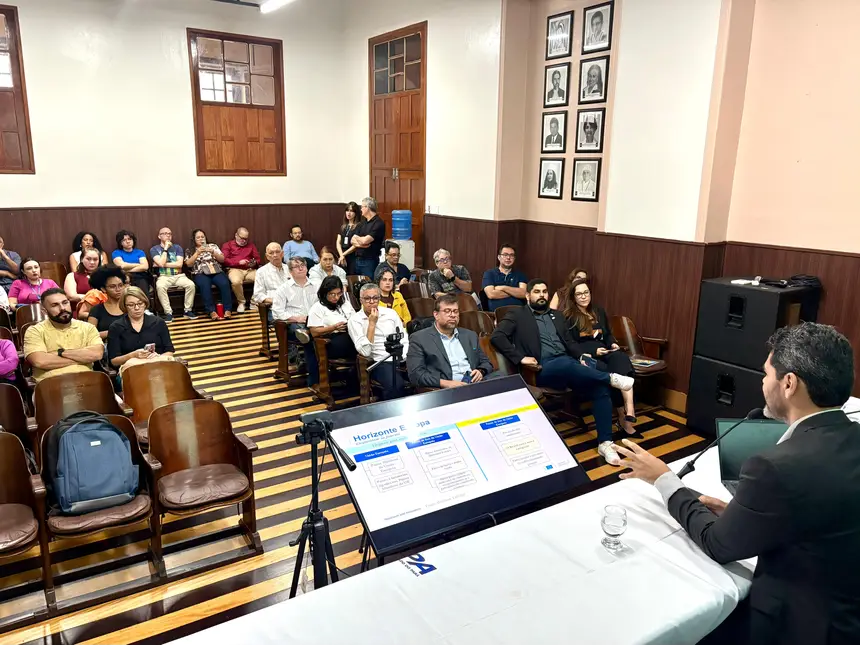
Internationalization - With a budget of 95 billion euros until 2027, Horizon Europe is the main funding program of the European Union aimed at research and innovation, supporting projects that seek solutions to global challenges and encouraging international cooperation between universities, research centers, and companies.
Professor Augusto Carvalho, from the Graduate Program in Environmental Sciences at Uepa, also a participant in the event, emphasized the importance of the workshop for academic programs and the sustainable development of the region. “The workshop is important, given the need for the internationalization of the programs that operate within the institution. Permanent faculty should be linked to these platforms and establish exchanges with leading universities, allowing for the exchange of experiences between the Amazon, European countries, and the United States. This contributes to the development of traditional communities, such as quilombolas, indigenous peoples, and riverside communities, and to discuss relevant issues of sustainability, water, forest, and other mutual interests,” evaluated the researcher.
Service: Interested parties in conducting exchanges but who could not
participate in the event can access the link https://ec.europa.eu/info/funding-tenders/opportunities/portal/screen/home, and have more than 180 open calls available for participation in various areas, ranging from health and digital transformation to agriculture and bioeconomy.
In addition to consulting the opportunities planned for the coming months, it is possible to search for partners through the “Partner Search” tool, and to learn step by step about the entire participation process.



